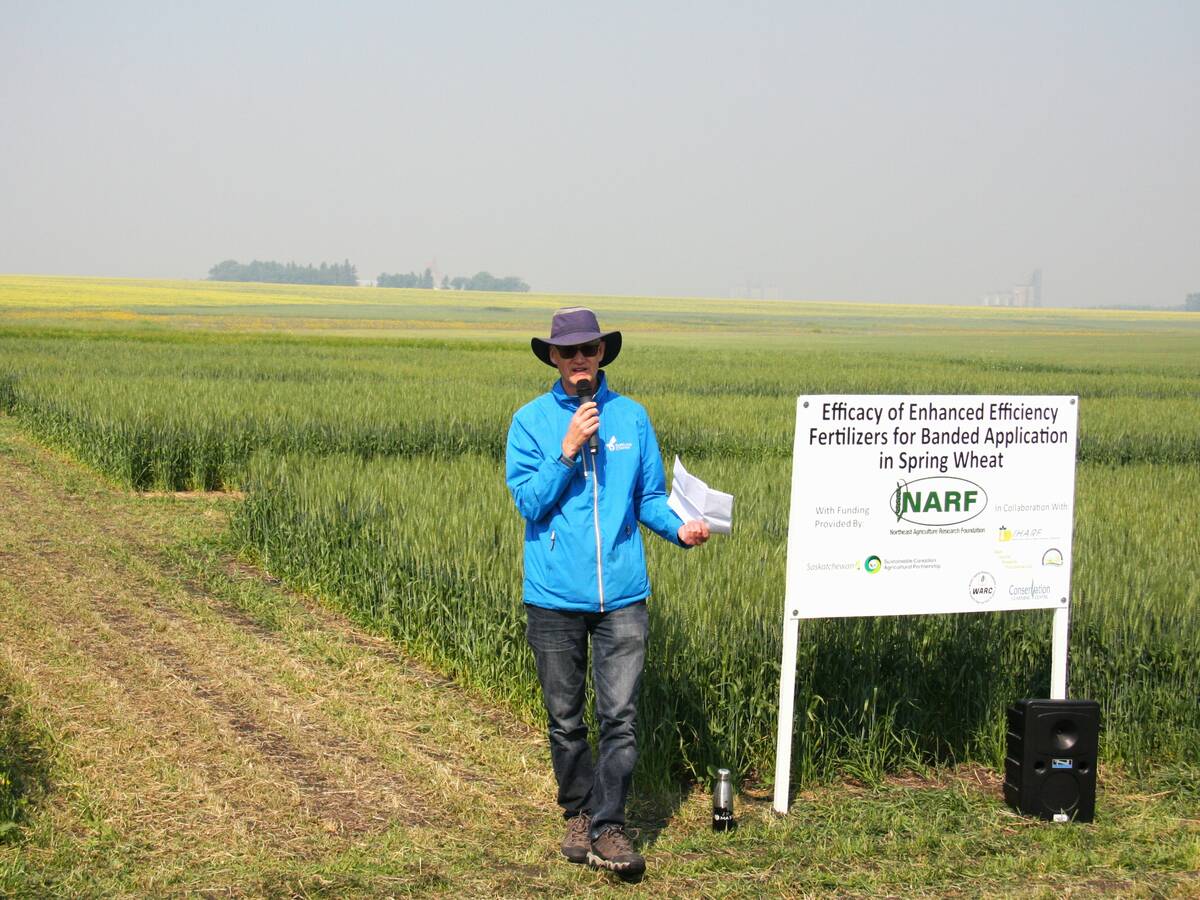Manitoba’s Organic Agricultural Products Act came into effect July 1.
The legislation regulates the use of the term “organic” for all food products grown or processed in Manitoba and sold within Manitoba.
The province is the first to enact legislation since the Canadian Organic Products Regulations were passed in 2009, which regulate the use of the term “organic” where products cross provincial or national boundaries.
British Columbia and Quebec had laws regulating what could be called organic within those provinces before the federal standard came into effect.
Read Also

Fertilizer method’s link to emissions studied
A researcher says others studying greenhouse gas emissions aren’t considering how the loss of nitrogen into the atmosphere correlates with fertilizer application or if there is an impact to yield.
The Manitoba legislation references the national standards as its standard and uses the same system of certification to verify organic integrity. Farmers and processors who use the word “organic” for their products will have to be certified by a federally accredited certification body.
This involves an annual inspection and audit by a qualified third party.
Organic production requirements include:
- Organic integrity should be maintained from seed to sale.
- Soil fertility and weed management are handled using organic methods.
- Substances that are not organic approved can’t be applied for three years prior to harvest.
Organic management means knowing the rules, understanding the principles and striving to meet them.
Organic producers do this because they believe it is good for the land and for the consumers who eat their food and because it distinguishes them in the marketplace.
Consumers are telling them that they value this commitment and are willing to pay extra for it.
Organic producers and processors have long been frustrated in their local marketplaces by copycat products that make organic claims but don’t have the rigour in their production that makes them truly organic.
Manitoba’s legislation now makes it illegal to make organic claims for products that do not meet the organic standard. It also expands from the federal jurisdiction to all the local markets within Manitoba.
Organic producers are generally encouraging to new entrants, but they feel that producers who want to ride on the wave of success that organic has generated in the marketplace should meet the standard that brought that success.
Pretending to be organic when they aren’t gives competitors an edge they haven’t earned.
For organic producers, “practically organic” just doesn’t cut it. It often masks ignorance about what is involved in organic production and what is required to obtain organic certification.
Organic certification adds a cost to the producer in terms of money, time and effort, but benefits the producer and consumer.
For producers, it is a requirement that reinforces their good practices and requires the kinds of records that improve their business management. It adds a level of validity to their hard work.
The Manitoba legislation will add clarity in the marketplace. Consumers will be less likely to be misled by copycat products.
Organic products will have organic certification, and producers should be proud to display it. If they don’t have certification, they won’t be organic.
Certification brings expert third party verification of the producer’s organic claim.
Consumers may enjoy a familiarity with a producer at a farmers market, for instance, but rarely do they understand the operation as well as a trained inspector.
To many consumers, a producer’s likeability is great but not enough to assure them that this is the sort of operation they wish to support. Certification means that organic really is organic.
Until now, provincial governments have held back on endorsing the Canadian organic legislation within their own jurisdictions. Manitoba is the first to do so.
Will others follow?
Manitoba’s legislation has been in the works for a long time. Surely some of this was a need to investigate the options thoroughly, but some was, no doubt, a difficulty in generating political will.
Both issues will plague provincial governments that follow in Manitoba’s footsteps.
The provinces will be watching the results of Manitoba’s legislation to determine if this is the way to go or if different arrangements should be made to safeguard organic integrity within provincial boundaries. They will also be listening to their own constituents to weigh their own political will.
Perhaps it is time for other provincial organic groups to make their feelings clear.

















